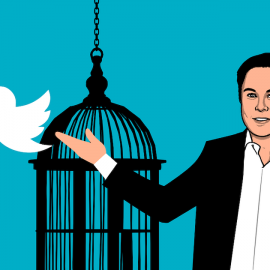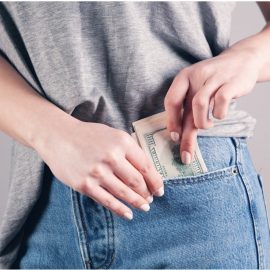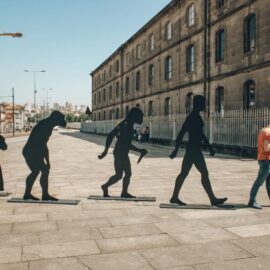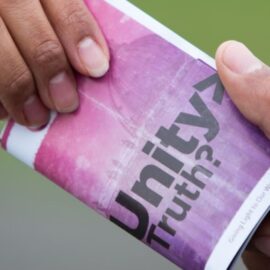
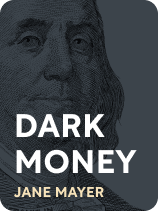
This article is an excerpt from the Shortform book guide to "Dark Money" by Jane Mayer. Shortform has the world's best summaries and analyses of books you should be reading.
Like this article? Sign up for a free trial here.
What’s the connection between the Koch brothers and the Tea Party? Was the Tea Party truly a grassroots movement?
The Koch brothers had hoped to block the election of Barack Obama in 2008. He succeeded, they failed, and a new season began. Journalist Jane Mayer discusses this period of American politics in her book Dark Money.
Continue reading to learn Mayer’s take on the Koch brothers, the Tea Party, and the efforts to obstruct Obama’s first-term agenda.
The Koch Brothers & the Tea Party
According to Mayer, partly as a result of the political movement funded by the Koch brothers, the Tea Party emerged in America. Let’s take a look at what led to that moment in political history.
In the 2008 election, Mayer claims, outside individuals and groups spent an unprecedented amount of money to influence the results. However, despite the Kochs’ and their donors’ best efforts, Barack Obama was elected president. His platform promised to reduce income inequality by making the wealthy pay their fair share. The Kochs and other elites were highly disturbed by this and were determined to undermine his presidency.
(Shortform note: The Kochs maintained a rocky relationship with President Obama throughout his presidency, particularly over climate change issues. In 2015, Obama singled out the Koch brothers as major contributors to climate change, accusing them of trying to keep clean energy businesses from succeeding by opposing subsidies for such businesses. This prompted a backlash from Charles Koch, who asserted that they’re against government subsidies of all kinds, though he admitted his company benefits from them. However, they have occasionally aligned on other issues, such as criminal justice reform.)
Because he took office during a recession, explains Mayer, one of Obama’s first pieces of legislation was a stimulus bill, which involved putting trillions of dollars of government money into the economy to pull it out of the recession. Immediately after Obama’s inauguration, the Kochs’ nonprofit advocacy group Americans for Prosperity began attacking his platform, organizing rallies and other events decrying public spending to undercut his proposed stimulus bill. Think tanks like the Cato Institute and the Heritage Foundation began publishing research papers and opinion pieces in opposition to the bill, sometimes based on incorrect facts that were nevertheless repeated by conservative media figures like Rush Limbaugh. According to Mayer, this unrest combined with the ideological movement fueled by the Kochs led to the creation of the Tea Party movement.
(Shortform note: The Heritage Foundation has maintained its anti-stimulus spending stance during the COVID-19 pandemic, citing the 2008 stimulus to suggest that stimulus spending is ineffective and costly. The Cato Institute has echoed this sentiment and painted stimulus checks as a political stunt. However, research from other groups suggests that the stimulus checks sent out during the pandemic resulted in the first major reduction of income inequality in a generation. The US Bureau of Labor Statistics predicts that income inequality will increase over the coming years absent further stimulus checks.)
The Tea Party movement was partly a response to Obama’s proposal in 2009 to help bail out homeowners facing foreclosure during the economic crisis. Some on the right balked at this suggestion and claimed that people who were facing foreclosure had made bad decisions and that others shouldn’t have to help pay for them.
(Shortform note: Libertarians and conservatives have been making similar arguments in recent years regarding the issue of student loan forgiveness, suggesting that it incentivizes government dependence and that loan debt is the result of poor decision-making by students—a belief held disproportionately by older Americans. For these reasons, some groups have even brought lawsuits against President Biden’s proposed debt relief plan.)
This sentiment—that poverty is a personal failing, that people shouldn’t be expected to help other people who are struggling, and that personal opportunity is more important than others’ welfare—defined much of the Tea Party platform, according to Mayer. The movement was painted as a widespread grassroots movement, but, in reality, it was engineered by outside money.
(Shortform note: While outside money was responsible for the creation of the Tea Party Movement, some have argued that it’s still a grassroots movement because of the widespread popular support it received due to existing beliefs among citizens. However, other research indicates that the Tea Party Movement is largely out of line with public opinion and that its influence on the GOP agenda is disproportionately large.)
Officials in Congress like Eric Cantor, Kevin McCarthy, and Pete Sessions formed a strategy of obstructionism designed to prevent any part of Obama’s platform from being enacted. This wing of the party began pressuring more moderate members to support this obstructionism. These moderates now saw that, if they didn’t shift to the right, they would be ousted in primary races and replaced with extreme candidates funded by outside money.
(Shortform note: The strategy of obstructionism was extremely successful, but it may have backfired on the Republican party as its leaders began to lose control of the movement. Eric Cantor ended up losing his seat in the House of Representatives in 2014 to a candidate who claimed Cantor wasn’t conservative enough. In 2023, Kevin McCarthy won the position of Speaker of the House on the 15th ballot, but only after surrendering much of his power as speaker to candidates who were denying him the position.)

———End of Preview———
Like what you just read? Read the rest of the world's best book summary and analysis of Jane Mayer's "Dark Money" at Shortform.
Here's what you'll find in our full Dark Money summary:
- How a group of wealthy individuals has legitimized far-right beliefs in America
- A look at Charles and David Koch's views and tactics
- The influence dark money has had on American politics and society

